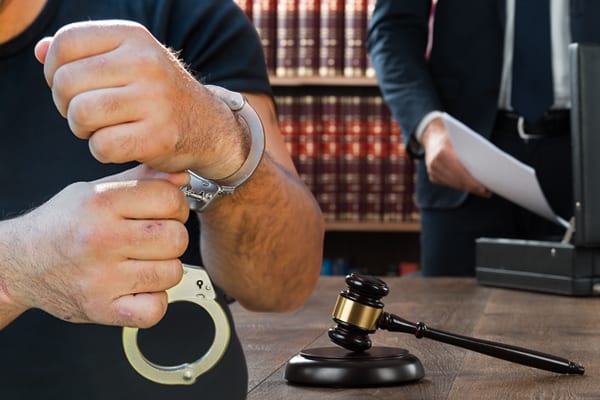Within the intricate criminal justice system, a defense lawyer serves as the defendant’s guide, shield, and confidant. Defense lawyers are often grouped in two teams: court-appointed lawyers covered by the private and government lawyers covered by the defendant.
Some criminal defendants are able to employ a personal criminal defense lawyer. For people who are unable to afford a lawyer (roughly eighty percent of criminal defendants), the court may appoint counsel to represent the defendant (supposing certain qualifications are met). These court-appointed lawyers are public defenders that are on government wages, or they’re so called”panel lawyers,” local lawyers chosen from a board.
Criminal defense lawyers (personal and court-appointed) investigate the truth, inquire into the case against their customers, and attempt to negotiate deals with their adversaries (prosecutors). These prices may contain decreased bond, reduced prices, and reduced sentences. Due to a range of factors–public and political anxiety, overcrowded jails, overloaded court calendars–deal-making has increased in importance, and it is now a vital part in unclogging the criminal justice system.
Criminal defense lawyers also examine witnesses, assist invent a plea, examine the prosecutor’s situation, evaluate the possible sentences (and also the chances of a specific judge awarding such a sentence), examine search and seizure procedures, question witnesses, and collect evidence. Defense counsel may also advise on possible immigration implications or alternative results of a plea, conviction, or criminal record.
Defense counsel also supply more private services by providing the defendant a reality check regarding the probable results and by assisting the defendant to take care of the frustrations and anxieties resulting from being chucked to the criminal justice system. And needless to say, if no plea bargain could be made, the defense attorney represents the defendant in trial.
Cost of Legal Counsel
A massive element in regards to legal representation would be that the defendant’s financial standing and if the defendant could afford private counsel.
Personal criminal defense lawyers charge on an hourly basis (expect to pay $150 an hour or even greater ) or with a predetermined or fixed fee. They’re banned from charging contingency fees, which are obligations that are based on the results of the situation. If the suspect is indigent (can’t afford private counsel), then the court could create a government-paid public defender or board lawyer.

A few –but not a lot –people have sufficient cash to ensure paying for a lawyer is not a fiscal strain. But organizing for legal representation frequently is not as easy for people who fall in between those groups of individuals.
The base line for candidates is the fact the right to free (government-paid) defense counsel usually kicks in if an indigent defendant faces a jail or prison sentence. When there’s absolutely no chance of incarceration–for instance, a judge says on the record which she doesn’t sentence the defendant to prison time–the defendant may not be eligible for free counselor (based on state legislation ).
Be aware that the right to free representation doesn’t indicate a right to the attorney of selection . A suspect who has been appointed counselor normally does not have to pick and choose from the manner that a paying suspect will.
Defendants sometimes feel that private lawyers have a distinct advantage within the people defender’s office or board lawyers that are paid a minimal fee. However, do personal lawyers provide better representation than court-appointed government-paid defense counselor?
According to studies that assess the results of having a personal versus court-appointed lawyer, data appears to indicate the outcomes for defendants are frequently the same. As an instance, one analysis suggested that defendants represented by personal counsel and public defenders fared equally in conviction rates and Legislation (even though those represented by board lawyers fared worse). Such statistical evidence isn’t always clear or reliable due to complicating factors. For example, customers represented by personal counsel frequently have brief or no previous criminal records, while indigent defendants are likely to be repeat offenders. What’s also uncertain –and what generates one of the greatest doubts of the criminal justice system–is if private lawyers can negotiate much better plea deals compared to court-appointed counsel.
In the end, the expertise, abilities, and dedication of the specific lawyer at hand–no matter whether or not she’s a public defender, supervisor lawyer, or personal attorney –would be the best indication of the quality of the representation.
What’s apparent is that being represented by a lawyer is nearly always the best choice. The conclusion of whether or not a defendant could self-represent is finally made by the judge, not the defendant. The judge must find out the defendant’s competency. That is simply because a defendant who cannot offer a capable defense cannot get a reasonable shake, even when defendant is determined by not needing the assistance of a court-appointed lawyer. When deciding whether a defendant could go pro se, a judge will consider factors like:
The seriousness of the offense
the defendant’s speech abilities and schooling
whether the defendant understands the nature of the proceedings, also
whether the suspect is intentionally giving up his right to counsel.
Locating an Lawyer
If you’re searching for a personal defense lawyer, start looking for an lawyer that specializes in criminal defense and clinics in the jurisdiction (county or city ) where charges are pending. A local lawyer will be knowledgeable about the judges and prosecutors in that region. Learn more in our website on what to look for in a personal criminal defense lawyer. You might also find more info on our home site, www.criminaldefenselawyer.com.
If you do not possess the financial resources to cover an lawyer, you may typically have to request court-appointed counselor (before or in one of your initial court hearings) and fulfill our paperwork on your own financial resources. Learn more in our post about how public guardian representation.